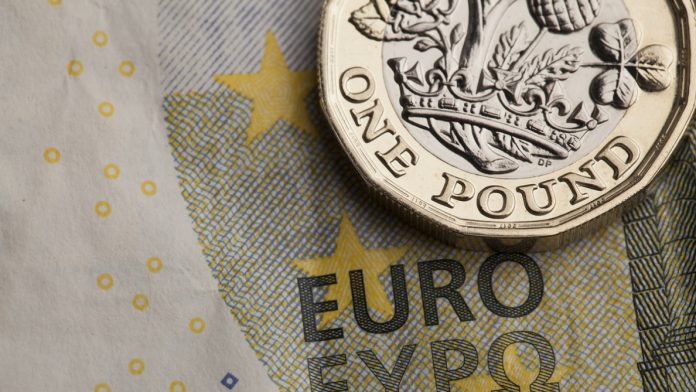- Pound (GBP) rises after UK construction activity surges
- UK set to ease covid restrictions on 19th July
- Euro (EUR) slipped on mixed data as retail sales rose but German factory orders fell
- German industrial production coming up.
The Pound Euro (GBP/EUR) exchange rate is edging higher after a flat finish on Tuesday. The pair settled Tuesday at €1.1674 with neither gains nor losses after rising as high as €1.1715 earlier in the session. At 05:45 UTC, GBP/EUR trades +0.05% at €1.1675.
The Pound found support in the previous session as data continued to reflect a strong rebound in the UK economy. Britain’s construction industry experienced its fastest growth in 24 years last month, boosted by a demand in new homes and commercial properties. The June construction PMI rose to 66.3, up from 64.2 in May, marking its highest level since 1997.
Adding to the upbeat mood surrounding the Pound, the government continues to push ahead with further easing of covid restrictions set for the 19th July. This is going ahead even as the Health Secretary Sajid Javid warned that covid cases could reach 100,000 per day over the coming months. However, with deaths so low thanks to the vaccine the government doesn’t consider this to be concerning enough to keep restrictions in place.
There is no high impacting UK data due today.
The Euro came under some pressure in the previous session after a mixed bag of data. On the one hand, Eurozone retail sales came in ahead of expectations, rising 4.6% month on month in June, up firmly from a -3.9% contraction in May as the economy re-opened after covid restrictions were eased.
However, data from Germany, the Eurozone’s largest economy was less encouraging. German factory orders unexpectedly declined -3.7% in May compared to April, down from a -0.2% decline in April and well short of forecasts of a 5% rebound. The data raises concerns that supply chain disruptions could undermine the economic recovery in Germany.
German ZEW investor sentiment also fell by much more than expected in July. The closely watched survey dropped from 79.8 in June to 63.3, a steep decline. However, this is still a solid reading and suggests that expectations for a strong recovery remain.
Looking ahead German industrial production number could attract some attention today and shed some light on the health of the sector.





